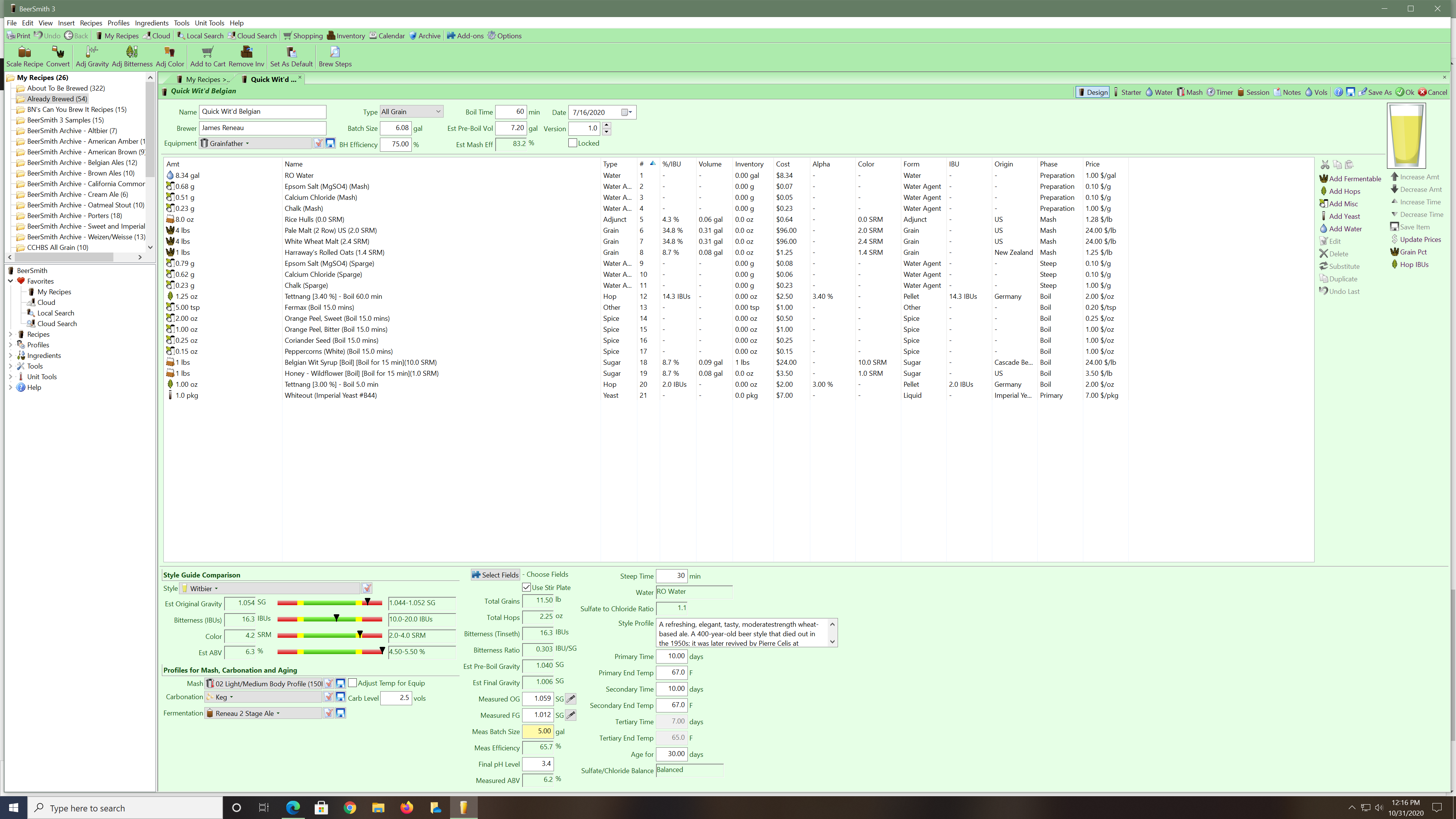Hartwa
Active Member
Hi guys...
Need some help with bru'n water....i am using "brussels" for the target profile.
I have not paid too much attention to my water making this in the past and I want to see if there is a benefit by making some adjustments per this spresdsheets recomendations.
My well water is soft:
>ph 5.8
>ca 12 ppm
>mg 4 ppm
>na 5 ppm
>so4 6 ppm
>cl 20 ppm
>Bicarb 3 ppm
Total hardness of 46
I can't seem to manage my additions to get the alkailinity to come in without sending my mash ph too high.
6.3 gallons mash, 10lbs 2 row, 8lbs white wheat 2 lbs flaked oats...
I make 10 gallon batches.
Anyone want to recommend how I should adjust my water?
Thanks for the help...
Need some help with bru'n water....i am using "brussels" for the target profile.
I have not paid too much attention to my water making this in the past and I want to see if there is a benefit by making some adjustments per this spresdsheets recomendations.
My well water is soft:
>ph 5.8
>ca 12 ppm
>mg 4 ppm
>na 5 ppm
>so4 6 ppm
>cl 20 ppm
>Bicarb 3 ppm
Total hardness of 46
I can't seem to manage my additions to get the alkailinity to come in without sending my mash ph too high.
6.3 gallons mash, 10lbs 2 row, 8lbs white wheat 2 lbs flaked oats...
I make 10 gallon batches.
Anyone want to recommend how I should adjust my water?
Thanks for the help...








































![Craft A Brew - Safale BE-256 Yeast - Fermentis - Belgian Ale Dry Yeast - For Belgian & Strong Ales - Ingredients for Home Brewing - Beer Making Supplies - [3 Pack]](https://m.media-amazon.com/images/I/51bcKEwQmWL._SL500_.jpg)

















